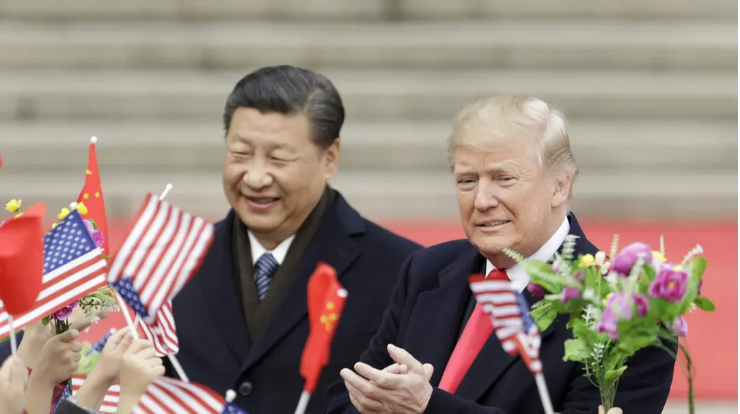China: US Imposes 'Obstacles' to Sharing Historic Moon Samples With NASA
After China's Chang'e-6 lunar mission became the first to return rocks and soil from the far side of the moon back to Earth in June, NASA administrator Bill Nelson told CNN on Monday that the China National Space Administration (CNSA) 'intends to share' access to them with the international commu...
0:00
/1861
Facts
- After China's Chang'e-6 lunar mission became the first to return rocks and soil from the far side of the moon back to Earth in June, NASA administrator Bill Nelson told CNN on Monday that the China National Space Administration (CNSA) 'intends to share' access to them with the international community.1
- This comes after the CNSA vice-administrator said on Thursday that the US has imposed 'obstacles' to space cooperation that would prevent American scientists from taking part in studies of the material, calling for their rescinding.2
- Specifically, the Wolf Amendment, passed by the US Congress in 2011, bars NASA from cooperating with China without the approval of the FBI. China's lunar mission was supported by the European Space Agency, France, Italy, and Pakistan.3
- US officials have claimed that NASA didn't receive 'any direct invitation' to examine the moon samples as other countries did.3
- NASA had shared samples collected during the Apollo moon landings routinely with countries such as the Soviet Union and China, with Nelson alluding to this precedent in his statement in support of NASA's involvement in the studies.1
- Chang'e-6 was the first landing on the far side of the moon, with China becoming the third country to return moon samples to Earth. China says it aims to land astronauts on the moon 'before 2030,' while NASA has set late 2026 as its goal for a return to the moon.1
Sources: 1CNN, 2South China Morning Post and 3Politico.
Narratives
- Pro-China narrative, as provided by Eurasia Review. The US has itself to blame for its exclusion from this historic moon mission. The US government and media assume a hidden malicious intent behind every Chinese action, which is behind their lack of recognition or support for China's first-of-its-kind mission. Cooperation is a two-way street, and the US should repeal the Wolf Amendment to take part in China's ascendant space program and orient space exploration for the good of humanity instead of engaging in petty geopolitics.
- Anti-China narrative, as provided by The Conversation. China is trying to foment a 'space race' narrative to score political points by spurning the US. The fact of the matter is that the US remains the dominant space superpower and trumps every other country in all relevant metrics in this field. What's more, China struggles to find international partners while the US is bolstered by a broad base of global support. China would benefit greatly from US support, but not the other way around, as they play games with such a historic mission.







